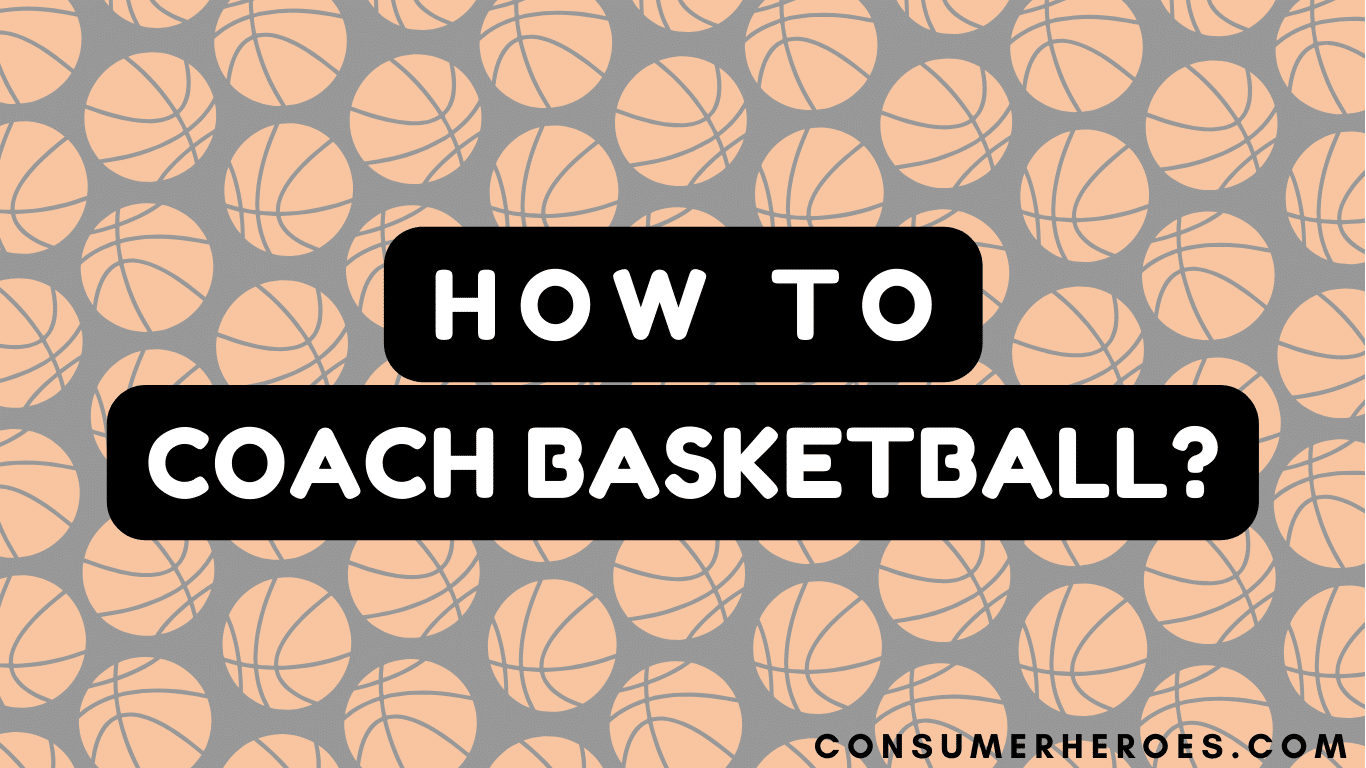Coaching basketball is a challenging yet rewarding experience. It requires a combination of technical knowledge, leadership skills, and the ability to motivate players to reach their full potential. Whether you are coaching a youth team or a professional team, the principles of effective coaching remain the same.
The first step to becoming an effective basketball coach is to have a solid understanding of the game. This includes knowledge of the rules, strategies, and techniques used in basketball. Coaches should also be familiar with the strengths and weaknesses of their players, as well as their opponents. This knowledge will help coaches to develop effective game plans and make strategic decisions during games.
In addition to technical knowledge, successful basketball coaches must possess strong leadership skills. They must be able to communicate effectively with their players, motivate them to perform at their best, and provide guidance and support when needed. Coaches should also be able to create a positive team culture that fosters teamwork, respect, and a strong work ethic. By combining technical knowledge with strong leadership skills, coaches can create a winning team culture that leads to success both on and off the court.
Understanding Basketball Fundamentals
Rules of the Game
Basketball is a fast-paced game that is played between two teams of five players each. The objective of the game is to score points by shooting the ball through the opponent’s hoop. The team with the most points at the end of the game wins.
Some of the basic rules of the game include:
- The ball can be passed, dribbled, or shot towards the opponent’s basket.
- Players cannot carry the ball while moving, but they can take up to two steps before shooting or passing.
- Fouls can result in free throws or possession of the ball.
- Each game consists of four quarters, each lasting 12 minutes.
Basic Skills
To be successful in basketball, players need to have a strong foundation in the basic skills of the game. These skills include:
- Dribbling: The ability to control the ball with one hand while moving around the court.
- Shooting: The ability to accurately shoot the ball towards the opponent’s hoop.
- Passing: The ability to accurately pass the ball to teammates.
- Rebounding: The ability to grab the ball after a missed shot.
Coaches can help players improve these skills by providing drills and exercises that focus on each skill individually.
Positions and Roles
Each player on the court has a specific role and position that they play. The five positions include:
- Point guard: The player who brings the ball up the court and initiates the offense.
- Shooting guard: The player who focuses on shooting and scoring points.
- Small forward: The player who is versatile and can play both offense and defense.
- Power forward: The player who is responsible for rebounding and playing defense.
- Center: The player who is responsible for defending the opponent’s basket and scoring points in the paint.
Coaches need to understand the strengths and weaknesses of each player on their team to determine the best position for them. They also need to ensure that each player understands their role and responsibilities on the court.
Developing a Coaching Philosophy
Developing a coaching philosophy is an essential step for any basketball coach. A coaching philosophy is a set of beliefs and principles that guide a coach’s approach to the game, their players, and their coaching staff. It is a crucial foundation for success and helps a coach stay focused and consistent in their coaching approach.
To develop a coaching philosophy, a coach must first identify their core values and beliefs about the game of basketball. This includes their coaching style, communication approach, and leadership style. A coach’s philosophy should also reflect their team’s goals and objectives, as well as the strengths and weaknesses of their players.
A coach’s philosophy should be communicated clearly to their players, coaching staff, and parents. It should be a guiding force in all aspects of the team’s performance, from practice to game day. A coach’s philosophy should also be adaptable and flexible, as the game of basketball is constantly evolving.
In summary, developing a coaching philosophy is a critical step for any basketball coach. It sets the foundation for success and helps a coach stay focused and consistent in their approach. A coach’s philosophy should reflect their core values and beliefs about the game, be adaptable, and be communicated clearly to all members of the team.
Planning and Conducting Training Sessions
Creating a Training Plan
Before conducting any training sessions, a coach must create a plan that outlines the goals and objectives of the session. This plan should include a variety of drills and exercises that focus on specific skills and techniques that the players need to improve on. The coach should also consider the age and skill level of the players when creating the plan.
To create an effective training plan, coaches can use the following steps:
- Identify the areas of improvement: Coaches should identify the areas where their players need the most improvement. This could include shooting, passing, dribbling, rebounding, etc.
- Set goals and objectives: Based on the areas of improvement, coaches should set specific goals and objectives for the training session. This could include improving shooting accuracy, increasing passing speed, etc.
- Plan drills and exercises: Coaches should plan a variety of drills and exercises that focus on the specific skills and techniques that need improvement. These drills should be challenging but achievable for the players.
- Create a schedule: Coaches should create a schedule that outlines the order of the drills and exercises, as well as the duration of each activity.
Conducting Drills
Once the training plan is created, the coach should conduct the drills and exercises in a way that maximizes player engagement and learning. Coaches can use the following tips to conduct effective drills:
- Demonstrate the drill: Coaches should demonstrate each drill and explain the purpose and technique to the players.
- Provide feedback: Coaches should provide feedback to players during the drill to help them improve their technique and skills.
- Encourage competition: Coaches should encourage players to compete against each other during drills to make them more engaging and challenging.
- Rotate players: Coaches should rotate players through different positions and roles during drills to give them a variety of experiences.
Incorporating Fitness Training
In addition to skill-based drills, coaches should also incorporate fitness training into their sessions to improve players’ overall physical conditioning. Coaches can use the following tips to incorporate fitness training:
- Start with a warm-up: Coaches should start each session with a warm-up that includes stretching and light cardio exercises.
- Integrate fitness drills: Coaches should integrate fitness drills into the training plan, such as sprints, agility drills, and endurance exercises.
- Monitor player fatigue: Coaches should monitor players’ fatigue levels and adjust the intensity of the drills as needed.
- End with a cool-down: Coaches should end each session with a cool-down that includes stretching and relaxation exercises.
By following these tips, coaches can create effective training plans and conduct engaging and challenging sessions that help their players improve their skills and physical fitness.
Game Day Coaching
Developing Game Strategies
On game day, the coach should have a clear plan for how they want their team to play. This includes offensive and defensive strategies, as well as any adjustments they may need to make based on the opposing team’s strengths and weaknesses. The coach should communicate these strategies to their players before the game and make sure they understand their roles and responsibilities.
To develop effective game strategies, coaches should analyze game film and study their opponents’ tendencies. This will help them identify the best ways to attack and defend against the other team. Coaches should also be willing to make adjustments during the game if their initial strategies are not working.
Player Rotation and Substitutions
During the game, the coach must manage player rotations and substitutions. This includes deciding when to rest players, when to bring in substitutes, and who should be on the court in different situations. Coaches should have a clear understanding of their players’ strengths and weaknesses and use this knowledge to make informed decisions.
Coaches should also be aware of the game situation and adjust their rotations accordingly. For example, if their team is trailing late in the game, they may need to put their best offensive players on the court to try and mount a comeback.
Handling Time-Outs
Time-outs are an important tool for coaches to use during the game. Coaches should use time-outs to make adjustments, motivate their players, and give them a chance to rest. Coaches should also be aware of the game situation and use time-outs strategically. For example, if their team is on a run, they may want to save their time-outs to use later in the game.
During time-outs, coaches should communicate clearly with their players and provide them with specific instructions for how to execute their game plan. Coaches should also be positive and supportive, encouraging their players to stay focused and confident.
In conclusion, game day coaching requires a clear plan, effective player management, and strategic use of time-outs. Coaches who are confident, knowledgeable, and clear in their communication will be able to lead their teams to success on the court.
Improving Player Skills
Basketball coaching involves helping players improve their skills and develop teamwork and communication. Coaches can achieve this by focusing on individual skill development and emphasizing the importance of teamwork and communication.
Individual Skill Development
Coaches should work with players to develop their individual skills. This involves working on the fundamentals of basketball, such as shooting, dribbling, passing, and rebounding. Coaches should also focus on developing players’ physical abilities, such as speed, agility, and strength.
One effective way to develop individual skills is through drills and exercises. Coaches can use a variety of drills to help players improve their skills, such as shooting drills, dribbling drills, and defensive drills. These drills can be done individually or in groups, and can be adjusted to meet the needs of each player.
Another important aspect of individual skill development is providing feedback. Coaches should provide constructive feedback to players, highlighting areas where they can improve and offering tips and advice on how to do so.
Teamwork and Communication
In addition to individual skill development, coaches should also emphasize the importance of teamwork and communication. Basketball is a team sport, and players need to work together in order to be successful.
One way coaches can encourage teamwork is by creating opportunities for players to work together in practice. This can involve running drills that require players to pass the ball to each other or work together on defense.
Communication is also key to successful teamwork. Coaches should encourage players to communicate with each other on the court, whether it’s calling out plays or providing feedback to each other during the game.
Overall, by focusing on individual skill development and emphasizing the importance of teamwork and communication, coaches can help their players improve their skills and achieve success on the court.
Dealing with Challenges
Managing Difficult Situations
Coaching basketball can be a challenging task, and coaches must be prepared to handle difficult situations that may arise during games or practices. Here are some tips to help coaches manage difficult situations:
- Remain calm: It’s important to stay calm and composed when dealing with difficult situations. Getting upset or angry will only make the situation worse.
- Communicate clearly: Coaches should communicate clearly with their players and other coaches to ensure that everyone is on the same page. This can help prevent misunderstandings and conflicts.
- Address issues promptly: Coaches should address any issues that arise promptly to prevent them from escalating. Ignoring problems will only make them worse.
Injury Management
Injuries are a common occurrence in basketball, and coaches must be prepared to manage them. Here are some tips for managing injuries:
- Have a plan in place: Coaches should have a plan in place for dealing with injuries. This plan should include procedures for assessing injuries, providing first aid, and getting medical help if necessary.
- Follow safety guidelines: Coaches should follow safety guidelines to help prevent injuries. This includes ensuring that players wear appropriate protective gear and that courts are in good condition.
- Encourage rest and recovery: When players are injured, coaches should encourage them to rest and recover before returning to play. Rushing players back too soon can lead to further injury.
Building a Team Culture
Building a strong team culture is essential for any basketball team to succeed. A team culture is the shared values, beliefs, and behaviors that create a sense of identity and purpose within the team. Here are some tips for building a positive team culture:
1. Establish Clear Expectations
The coach should establish clear expectations for the team from the beginning of the season. This includes expectations for behavior, effort, and attitude both on and off the court. By setting clear expectations, players will know what is expected of them and will be more likely to buy into the team culture.
2. Encourage Communication
Communication is key to building a strong team culture. The coach should encourage open and honest communication among players and between players and coaches. This can be done through team meetings, one-on-one meetings, and team-building activities.
3. Emphasize Teamwork
Basketball is a team sport, and players need to work together to be successful. The coach should emphasize the importance of teamwork and encourage players to support each other both on and off the court. This can be done through team-building activities, such as trust exercises and team dinners.
4. Celebrate Successes
It is important to celebrate successes, no matter how small they may be. This helps to build team morale and reinforces positive behaviors. The coach should recognize individual and team achievements and encourage players to celebrate each other’s successes.
5. Hold Everyone Accountable
Finally, it is important to hold everyone accountable for their actions. This includes players, coaches, and support staff. The coach should establish consequences for negative behaviors and enforce them consistently. This helps to create a sense of fairness and equality within the team.
Evaluating Progress
Player Evaluation
Evaluating individual players is an essential part of coaching basketball. Coaches need to assess each player’s strengths and weaknesses to help them improve their skills and contribute more effectively to the team. Here are some ways to evaluate players:
- Observation: Coaches should observe players during practice and games to see how they perform in different situations. This can help coaches identify areas where players need improvement.
- Statistics: Keeping track of statistics such as points, rebounds, assists, and turnovers can provide valuable information about a player’s performance. Coaches can use these statistics to evaluate players’ contributions to the team.
- Feedback: Coaches should provide regular feedback to players about their performance. This feedback should be specific, constructive, and focused on areas where the player can improve.
Team Performance Evaluation
Evaluating the team’s performance is also critical for coaches. Coaches need to assess how the team is performing as a whole to identify areas where they need to improve. Here are some ways to evaluate team performance:
- Game Film: Coaches should review game film to see how the team is performing in different situations. This can help coaches identify areas where the team needs to improve.
- Statistics: Keeping track of team statistics such as points per game, rebounds per game, and turnovers can provide valuable information about the team’s performance. Coaches can use these statistics to identify areas where the team needs to improve.
- Feedback: Coaches should provide regular feedback to the team about their performance. This feedback should be specific, constructive, and focused on areas where the team can improve.
Evaluating progress is an ongoing process that requires coaches to be observant, analytical, and constructive. By evaluating players and team performance regularly, coaches can identify areas where they need to improve and help their players reach their full potential.







